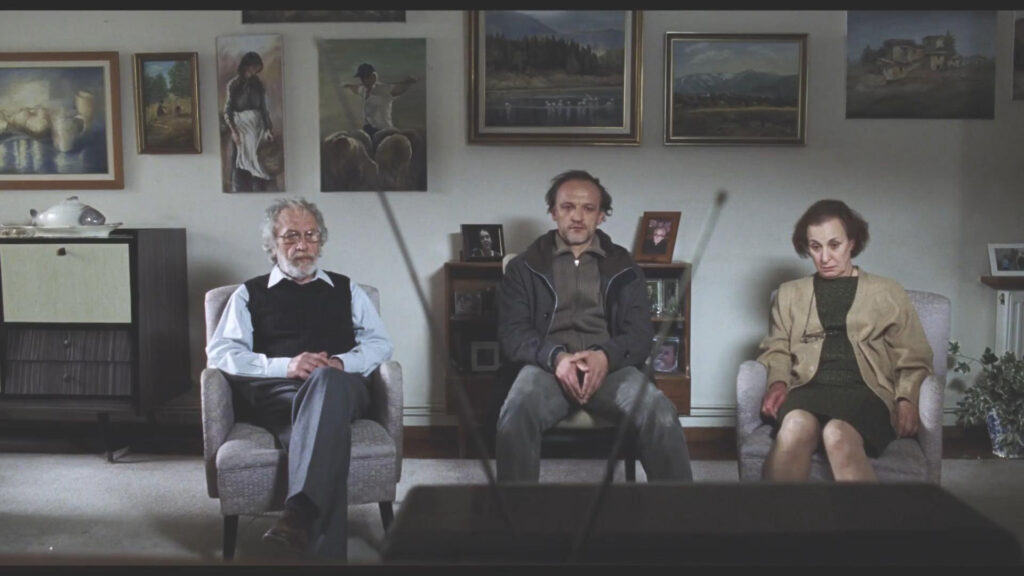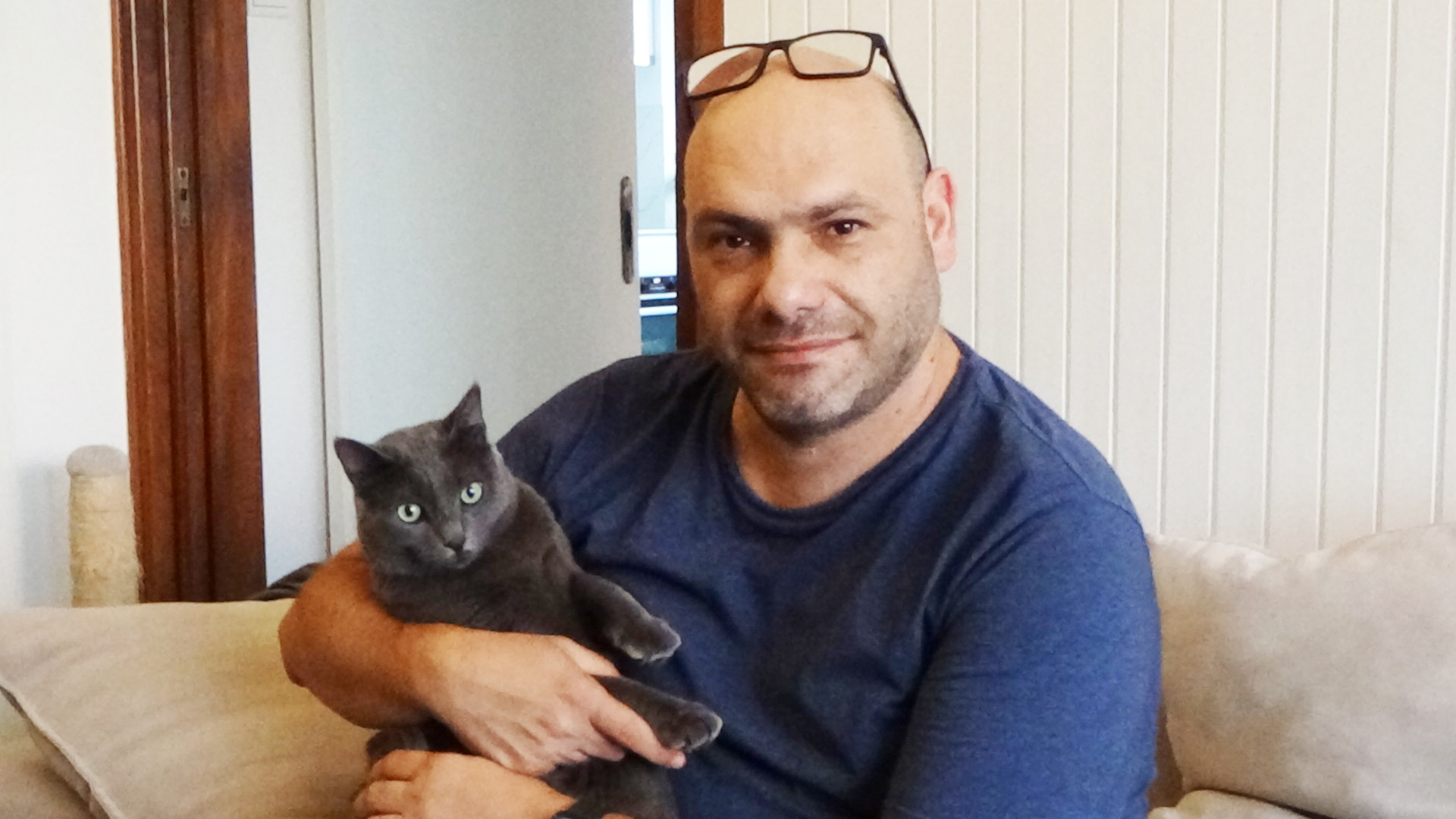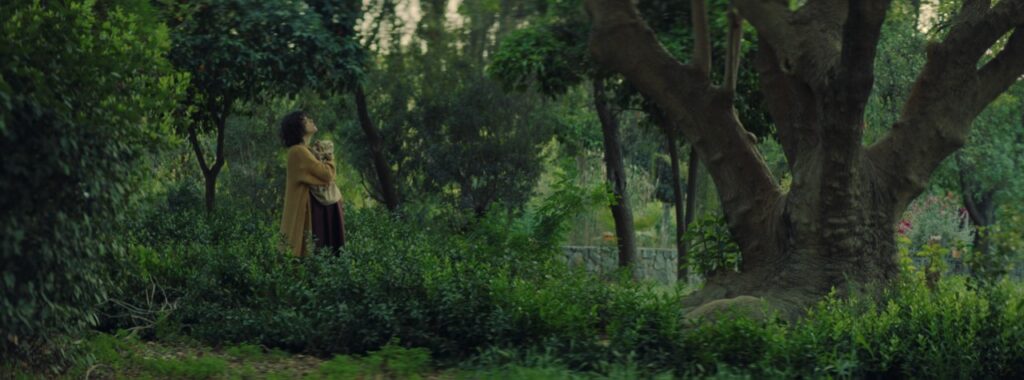In a mournful romantic, THEO PANAYIDES finds a man for whom art is therapy as well as vocation, pained by the jungle mentality of the film industry as he took four years and almost no resources to make a feature
I talk to Kyros Papavassiliou on Saturday October 9 – an apt occasion, since he’s a filmmaker and it’s the premiere of ISFFC, the International Short Film Festival of Cyprus (though he doesn’t have a film in the festival, and our interview takes place in his small flat in Strovolos). We were supposed to talk the day before, at a coffee shop he likes to frequent, but something even more apt – and revealing of a filmmaker’s life – happened: he’d been working 10 nights in a row doing colour correction on his latest movie, finally conked out after he’d finished, slept through the day and completely missed our appointment.
I say ‘latest movie’, but in fact he has two feature films in the pipeline – one of them, Embryo Larva Butterfly, a state-funded project made on the strength of Impressions of a Drowned Man (his previous film, which played the prestigious Rotterdam festival in 2015), the other one (the one he’s been colour correcting) a film called The Sock which he’s been making independently for the past four years. Both have been shot, and are now in post-production – but The Sock is by far the more remarkable, just for the fact of its existence. Simply put, this is not how films are made in Cyprus.
It happens occasionally, of course, a bunch of teens grabbing a camera and making a film for a lark – but not a 49-year-old writer-director who’s already achieved some renown (Kyros’ third short, In the Name of the Sparrow, played at Cannes in 2007) spending four years painstakingly shooting a scene here and a scene there, using his own camera and editing equipment. He shot when his actors were available, “and when I had money, because I didn’t have money”. Most of the money went on buying hard discs to store the footage; there were no lights – hence no lighting technicians – and a crew of one, a camera operator. There might not even have been a need for him, if it weren’t for the fact that Kyros also plays the lead role in the movie.
The whole thing is incredibly romantic: no-budget filmmaking, a labour of love. Kyros has form in this respect, since he never went to film school and made his first shorts (in Athens, in the early 00s) in much the same way, learning the craft as he went. Putting himself, a non-professional actor, onscreen for 90 minutes is perhaps the riskiest gamble in The Sock – but in fact it works, because Kyros’ energy is very distinctive. He’s bald and stocky, with a certain Eeyore-ish, lugubrious charm; his default mode seems pessimistic but it’s a rueful, long-suffering pessimism. He’s not self-important; even when he strays into bitterness – inevitably, given the state of the industry in Cyprus – it’s with a kind of ‘Can you believe this shit?’ chuckle. He can sound pretentious, at least on paper, but the words are delivered slowly, often haltingly. He’s an Artist with a capital ‘A’, in an age when that’s deeply unfashionable.
I ask about the short film festival, mostly a showcase for young, up-and-coming directors, just out of film school in the US or UK. How does he feel when he looks at these youngsters, especially given their (probable) prospects?

Impressions of a Drowned Man
“Everyone shapes their own future according to their ability,” he replies – “and their capacity for wiggle room,” he adds with a wry grin, meaning their willingness to compromise. Another pause: “I hope these kids won’t have to wiggle too much in order to get ahead, and I hope it won’t be what Karyotakis said about inglorious poets – how does it go? I’ve forgotten the poem…” ‘Karyotakis’ is Costas Karyotakis, a famous (and famously melancholy) Greek poet who committed suicide at the age of 31, and was also the secret hero of Impressions of a Drowned Man. Quoting dead poets seems like an extremely Kyros Papavassiliou thing to do (he’s himself a poet, having published a collection called To Ponima in 2001) and the Karyotakis quote turns out to be apropos, being about artists “who are not very – talented, let’s say, yet sacrifice their life to their art”.
That’s a whole other matter, of course – the question of talent, and art as a trap sucking in the unwary. It’s what bourgeois parents are always warning their over-imaginative children against – and Kyros’ own parents (his mum was an accountant, his dad a manager at Pittas dairy) also “viewed art in an amateur way: ‘Do it as a hobby’, let’s say”. Parents have a point, insofar as artists never have a solid idea of their own talent – it’s impossible to know what’ll work; you plunge in, guided by a vision – and making art is seldom very lucrative. “Now, as to money,” says Kyros, and chuckles: “If I cared about money, I’d be rich. But I don’t, so I’m not.” Anyone who’s sufficiently driven to spend four years making a movie with almost no resources would surely have the nous to make money, if that were his aim – but instead Kyros makes ends meet by occasionally editing films for other filmmakers, working as a substitute music teacher (his degree was in Philosophy and Musicology), and putting on stage productions with his partner Maria Varnakidou. The couple also share the flat in Strovolos, along with a friendly cat named Molly and bookshelves speckled with philosopher greats like Nietzsche, Derrida and Heidegger.
He’s never had a day job, that eternal time-suck and sapper of motivation. The only off-ramp to a so-called normal life came when he secured a position as a music teacher in Cyprus (he hadn’t sought one; but his name was on the infamous ‘list’, and his turn had come) – but he was living in Athens, and decided to stay. Earlier, too, when he left LA (his degree was at California State University), he chose to go to Greece rather than come here: “I couldn’t take living in Cyprus, I felt like I couldn’t –” he pauses – “be understood, let’s say, with regard to what I was thinking”. He came back 10 years ago, to make Impressions of a Drowned Man – and yes, “I feel very alone. I feel like I can’t communicate very easily”.
In what way?
“It’s a small society, so you have fewer chances to meet –” another pause – “the kind of people you’d like to meet. Your own kind, let’s say”. Then again he hated LA as well, hated university (one reason why he later avoided film school) and what he calls “a very post-modern situation where people saw each other entirely opportunistically”. There’s a back-story to Kyros, and it’s not always a happy one: there’s a reason why his only feature has affinities with gloomy Karyotakis – though the new films, he insists, are much lighter.
“Look, I’ve had a hard time in my life,” he says simply. “I suffered terribly from depression, when I was younger. I did a lot of crying.” It’s intriguing to note how he first got into filmmaking, when he first picked up a camera: “Back then,” he recalls – ‘back then’ being in Athens, when he happened to get a lowly job as production assistant on a TV series – “back then, cameras didn’t have that monitor, they had an eye-piece”. One literally saw the world as the camera viewed it, there was no other way. “And looking through that eye-piece, I felt my inner world becoming isolated – calming down, let’s say, growing more serene. And then I was able to see, to imagine. To function, let’s say.” It’s a telling detail, isolation (or escape) from the world equated with serenity and creativity. Art may not just be a vocation for Kyros; it might also be therapy.
We should probably backtrack a bit, lest we give the impression of a hopeless depressive. For one thing, as already mentioned, there’s a sense of humour; he may not be able to communicate in Cyprus but “I can joke around,” he notes with an edge of the sardonic. His daily routine includes an hour at the coffee shop in the late morning, where he chats and lets his hair down for a while – then heads home to work, often till late at night. Despite his troubled past, he never fetishised depression (“I wasn’t a Goth”) or strove to be gloomy; it was just that he felt the need to make art, and the pain of being prevented from making it. His first two shorts (Lament and In Kafka’s Trial Room) are especially close to his heart in this respect, being films he made with no budget and no expectations, talking of art and poetry “and what place poetry has in our lives”.
For many people, I point out, it has no place at all.
“Yeah, okay, fine…” he agrees – then gives another dark, sardonic chuckle: “Fuck ’em!”.
Art is Kyros’ passion, his daily bread. It’s presumably why he made The Sock, frustrated by the pace of filmmaking on the island; almost all films are funded, in whole or part, by the culture ministry – but a lack of money and surplus of filmmakers mean that even a successful director can only expect to make a film every six years or so. By the time he started shooting Embryo Larva Butterfly – after years of applying for script development, production, financial planning and so on – “I was almost apathetic,” he sighs. “I mean, how long can you wait?” (The film still looks promising, starring well-known Greek actor Makis Papadimitriou.) Someone else may shrug that it’s the System, you can’t just expect to make films whenever the spirit takes you – but art, for Kyros, isn’t bureaucratic, it’s romantic and noble. The idea of ‘artistic solidarity’ comes up in The Sock, a notion of artists as a kind of high priesthood, uniquely able to understand and support each other; he’s pained by the dog-eat-dog competition that’s often the reality, the “jungle” mentality of the film industry. He’s also quite intense when shooting a film, he admits – “because for me what I’m doing is my life, whereas for a guy in the crew it’s just another movie… So it’s easy for misunderstandings to occur”.
All this is perhaps why he tends to work alone; not completely, of course, film is collaborative – nor can he imagine himself making avant-garde abstractions in his bedroom, Stan Brakhage-style – but it feels, more and more, like his inner self is the only criterion, rather like that early epiphany when he looked through the eye-piece and felt the world melt away. Heidegger appears on the bookshelves, and Kyros cites the philosopher’s existentialism as a big influence: “The decisiveness. The idea of authentic and inauthentic existence. The sense of death, let’s call it that. The desire to live authentically, above all – even if you’ve never actually done it.”
The sense of death… He’ll be 50 in a few months, after all. “I have a sense – as we all should, or perhaps we do but we don’t admit it – of my age,” says Kyros, speaking sadly of his generation as weighed down by a kind of social trauma, invisibly broken by an echo of the invasion. “I mean, we don’t really have much left that we can do. It’s now or never, whatever we do. So, from now on, I have nothing to lose by trying to do whatever I want to do”. Hence, perhaps, making a film on his own steam, hence perhaps not waiting for the System – or indeed other people – to catch up. Hence perhaps the chuckle behind his demeanour, the chuckle of a man who no longer cares about wiggle room.
He’s alone in another sense too, a Tarkovsky fan (the Soviet director’s Mirror is “the most beautiful film ever made”) in the age of Netflix. “Netflix is an algorithm,” shrugs Kyros; the problem isn’t Netflix – the problem is the way it’s taken over, part of the populist monoculture that seems to exclude any other option. “Ordinary people need art,” he insists, “they just don’t know that they do… They’ve become so stupefied – education has become so pre-packaged that no-one feels the need to explore anything. So they’ve all become like robots, they’re all stupefied now.”
So if he went to ISFFC right now, the short film festival with all those young directors? Would he not find a single Gen Z-er who loves film the way he does?
“No, I think I would,” he replies at once. “There are always some. Because – how can I put it, geniuses exist in every age. However tragic their life might be.” Is this where we bring in the old Karyotakis quote about inglorious poets? Is Kyros himself just a mournful romantic, and a bit of an outsider – or is he indeed touched by genius, and doomed to a tragic life? The truth lies in between, in the knowledge of being always unknowable – and the life lived regardless. The poetry does too.








Click here to change your cookie preferences